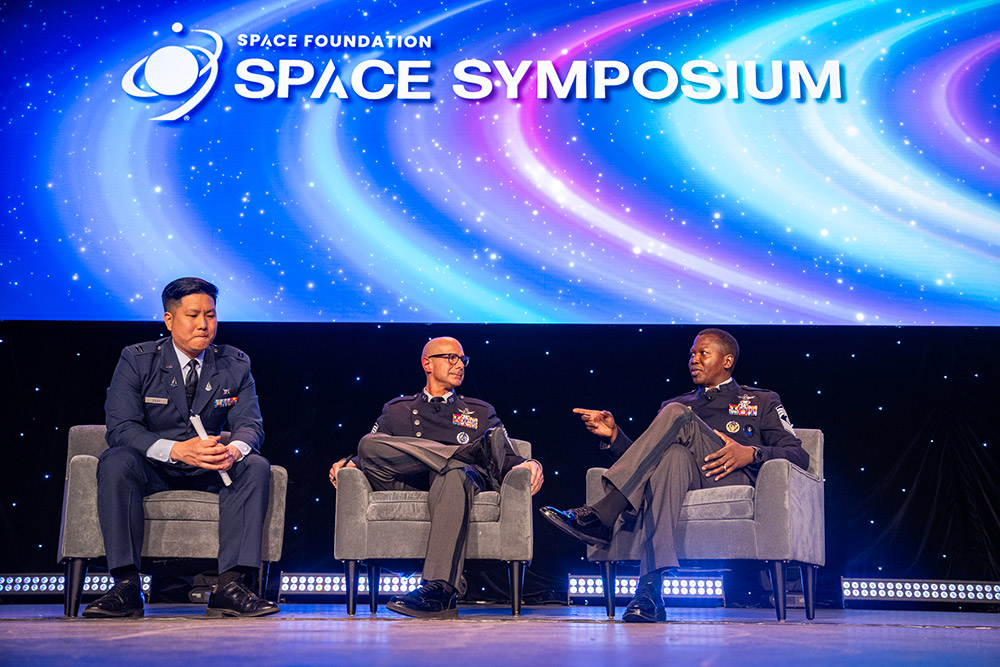In a reflective and forward-looking discussion, Chief Master Sgt. John Bentivegna, Chief Master Sgt. Jacob Simmons, and other key leaders gathered for a fireside chat to conclude the 40th Space Symposium in Colorado Springs, Colorado, on April 10. The conversation focused on the critical roles and responsibilities of the U.S. Space Force and U.S. Space Command (USSPACECOM) within the evolving landscape of military operations in space.
Chief Master Sgt. Bentivegna emphasized the Space Force’s pivotal role as a force provider, detailing the extensive efforts in training and equipping personnel for space warfighting capabilities. “The service works hard to deliver, produce, provide and develop the equipment, training, and human weapon systems. This is essential for supporting combatant commands in their missions,” he explained.
Simmons, who is the command senior enlisted leader for USSPACECOM, highlighted the collaborative nature between the Space Force and other military services. He acknowledged that while various services present capabilities to USSPACECOM, “the preponderance of capabilities” originates from the Space Force, underscoring its vital contribution to joint operations.
Both leaders addressed the importance of training and preparation for Guardians, the enlisted members of the Space Force. Bentivegna noted the necessity of equipping Guardians with the skills and leadership needed to navigate evolving threats and execute mission planning effectively. “Enlisted Guardians, you are the warfighters of the service. You are subject matter experts in your weapon systems; you work together as a team,” he stated.
Credibility emerged as a recurrent theme in the discussion, with Simmons elaborating on its significance in enhancing the Space Force’s reputation. He articulated four “C’s” — caliber, competence, capability, and competitiveness — as fundamental to building a credible image among adversaries.
Bentivegna further reiterated the importance of the Space Force Truths, emphasizing that space is inherently a warfighting domain and that Guardians are uniquely trained to excel in this critical area. “Space superiority is our service’s business,” he noted, reinforcing the Space Force’s commitment to maintaining a competitive edge in space.
When discussing deterrence, Simmons articulated a vision in which adversaries view Guardians as formidable opponents. “They should think that ‘I am going to be outmoved, I’m going to be outmaneuvered.’ That’s credibility,” he asserted.
As the discussion wrapped up, Bentivegna shared an optimistic outlook on the future of the Space Force. “We have accomplished so much. I like to say there’s so much more opportunity still before us. The opportunities are endless,” he concluded, leaving attendees with a sense of hope and determination for the path ahead.
This engaging conversation not only highlighted the past successes of the Space Force but also set the stage for an ambitious future in space operations, emphasizing the essential role of Guardians in ensuring national security and maintaining space superiority.






